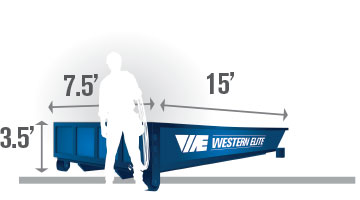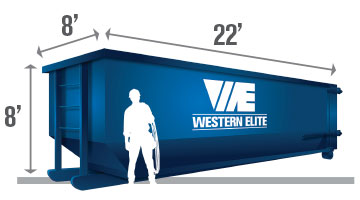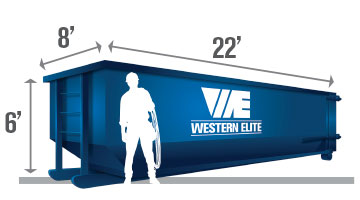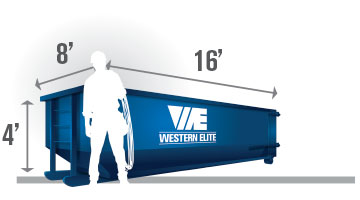There is a theory currently making the rounds in various intellectual circles about the existence of something called “mob mentality” in a community. At its most basic level, the theory can be described as the threshold within each individual of withholding against external pressures before they take part in something that others are doing. This doesn’t have to be a negative thing (“mob” moniker notwithstanding), but simply a way to discuss the psychological pull the actions of a group can have upon an individual.
From an environmental perspective, behavioral scientists have been looking for ways to understand the pandemic of littering that currently exists within every city, town, and hamlet on earth; what is leading people to litter, and what toll is it taking on the earth? As a waste management company, we have taken a special interest in the effects of little upon Mother Nature, and have tried to identify ways that we can relieve the situation.
Reasons for Littering
Before discussing all the possible reasons people choose to litter, it’s important to remember that much of the litter that exists in the world today is the result of unintentional mismanagement in waste disposal. For example, a residential trash barrel is filled to capacity and the lid is slightly open; a strong gust of wind could stir loose trash out of the can and send it down the street, all without the owners or the garbage men knowing.
However, there are numerous reasons as to why some individuals feel the need to litter intentionally. A few examples include:
- An excess of litter already in the area: Jumping right into the “mob mentality” of littering, an abundance of trash already on the ground has shown to have an unintended mental effect on the minds of passers-by, who may think that it’s okay to join in. This phenomenon can compound if the litter is near or adjacent to a commercial dumpster.
- Believing the trash is someone else’s responsibility: With regards to the previous point, the amount of litter that doesn’t make it into a designated receptacle, but simply is strewn on the ground round-about, is a sign of the human tendency to pass off responsibility. “It’s someone’s job to take care of the trash; it will all be gone by the end of the week” is a refrain too often used to justify being a follower of the pack, instead of a leader.
- Laziness: Perhaps someone tossed the trash towards the dumpster but missed, and now it lies out of reach; perhaps someone doesn’t see a wastebasket nearby and doesn’t want to hold on to the trash; perhaps someone innocently dropped trash on the ground but “really must be going.” There are numerous circumstantial reasons why someone chooses to litter but the inner reason is always the same: we delude ourselves into thinking that we’re either too busy, too inconvenienced, or too important to dispose of trash properly. In reality, this is just laziness.
- Mistakenly relying on biodegradation: It’s true that everything that has ever been made is “biodegradable,” but some things take months, years, or even centuries to finally break down completely. In the meantime, the pollution and greenhouse gases caused by the litter as it slowly decomposes far outweighs the good that “returning the trash to nature” could possibly do.
As one can see, sometimes these reasons cascade into one another as a series of reasons. Unfortunately, the existence of litter does more than just signify the breakdown of the communal attitude of responsibility towards their areas of influence﹘it’s having a very real effect on the planet as well.
Littering According to the Stats
While littering exists everywhere, among all demographics, the type of litter and the type of litterer follow an interesting pattern, according to the data. Studies have shown that regarding the type of litter on city streets, the breakdown is as follows:
- Tobacco Products: 37.7%
- Paper Products: 21.9%
- Plastic Products: 19.3
- Metal Products: 5.8%
- Glass Products: 4.5%
- Organic: 4.2%
- Construction Debris: 2.6%
- Vehicle Debris: 1.5%
- Other: 2.5%
When one considers that over 9 billion tons of litter end up in the ocean each year (to say nothing of that which hasn’t gotten there yet and is currently lying in a gutter or a field) it is staggering to think how many cigarette butts and fast-food wrappers that is. Another surprising thing to contemplate is the breakdown of the demographics most likely causing all of that littering. The data shows that litterers are most often comprised of the following categories:
- Drivers: 52.8%
- Pedestrians: 22.8%
- Unsecured Loads: 16.4%
- Containers: 1.5%
- Vehicle Debris: 2.3%
- Unknown: 4.1%
Surely the aforementioned reasons for littering have interesting correlating attributes with these demographics. By understanding what the trash is, who is producing the trash, and why they are choosing to litter, we can look inside ourselves and ask the essential questions, “am I part of the problem? How can I be part of the solution?”
For our part, Western Elite is trying to curb the negative effects that littering has on our planet. By renting one of our dumpsters and using it responsibly, you are declaring your determination to be a part of the solution, considering that our business helps us reduce landfill waste and recycle more.






